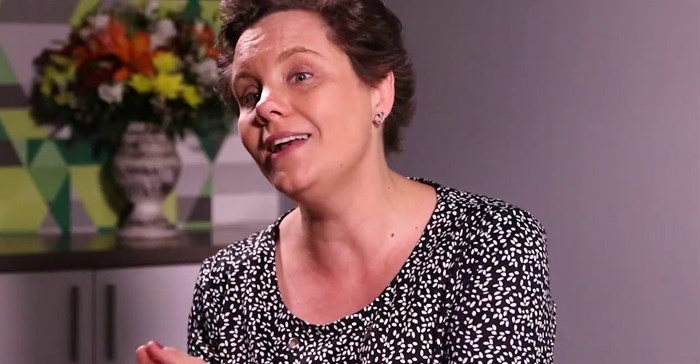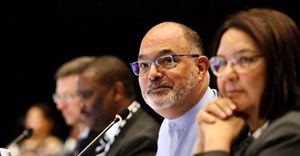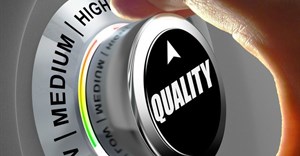Trending
Elections 2024
Jobs
- Accounting Clerk Knysna
- Senior Bookkeeper Knysna
- Auditing Manager Cape Town
- Senior Auditor Cape Town
- Accountant Johannesburg
- Senior Professional Officer Cape Town
- Accountant Knysna
- Payroll Accountant George
- Accountant Cape Town
- SAIPA Trainee Accountants Cape Town
Misconceptions about the roles and responsibilities of the auditor

Should auditors have seen the early warning signs of these collapses? But, is this the role and responsibility of the auditor? Is it fair that the auditing profession is being slated for these corporate shortcomings? The current state that the profession finds itself in may very well be as a result of a lack of understanding of the role and responsibilities of an auditor.
An audit is not a guarantee against all things that can go wrong in the operations of an entity. According to the International Standards on Auditing (ISA), the auditor’s opinion does not assure the future viability of the entity or the efficiency or effectiveness with which management has conducted the affairs of the entity. An audit also does not assure the company’s financial status, including items of a financial, risk, management or regulatory nature.
There is a significant amount of focus on whether the level of audit quality has improved since the global financial crisis. However, the question is whether a poor level of audit quality was responsible for this global financial crisis to begin with; or was this rather as a result of a market crisis; or even perhaps a failure of corporate governance?
This is also true for the more recent corporate collapses that the market has seen. What was the actual cause of these collapses? Was an audit failure the root cause of the collapse, and if so, was the root cause of the audit failure a gap in the standards or human/behavioural error? Or was this a failure of corporate governance, which could have included unethical behaviour of parties involved?
Lessons learnt
Management is ultimately responsible for preparing financial statements, and having a system of internal controls necessary to achieve this. An important lesson learnt from the financial crisis is that an audit performed in accordance with the desired level of audit quality cannot be expected to compensate for weaknesses in management taking responsibility and being accountable. A quality audit can also not be expected to address flaws in the business model or the implementation of an inadequate risk management process.
All CAs(SA), including members in public practice (MIPP) and members in business (MIB) should take equal responsibility and should be equally accountable in terms of complying with the fundamental principles of an audit. Both MIPP and MIB are subject to the same standards of professionalism and ethics. As an example, auditors must be diligent in performing their work in accordance with the relevant codes, standards and laws and regulations. Similarly, preparers of financial statements, boards of directors, and the management and employees of organisations must be ethical in their business dealings.
A positive outcome of the corporate collapses was that it highlighted that the general public expects auditors to communicate more. The general public expects the communication of the auditor to provide a glimpse into the inside operations of an entity and where necessary, early warning signs of failures.
Management’s responsibilities
In addition to the misconceptions highlighted above, certain preparers of financial statements believe that the auditor is responsible for ensuring that the entity arrives at the right answer in finalising the preparation of the financial statements. However, this is the responsibility of management. The financial statements subject to audit are those of the entity, prepared by management of the entity with oversight from those charged with governance. The auditor is only responsible for expressing an opinion on the preparation and fair presentation of the financial statements. In many instances, management and the audit committee are at the forefront of this expectation; yet they maintain a strong view that auditors are independent.
The ISAs do not impose responsibilities on management and do not override laws and regulations that govern their responsibilities. However, an audit in accordance with ISAs is performed on the premise that management have acknowledged certain responsibilities that are fundamental to the conduct of the audit. The audit of the financial statements does not relieve management or those charged with governance of their responsibilities.
Furthermore, the auditor’s report includes a statement of management responsibilities, where it is stated that the directors are responsible for the preparation and fair presentation of the financial statements and such internal controls as the directors determine necessary to enable the preparation of financial statements that are free from material misstatement, whether due to fraud or error.
Management is therefore responsible for the design and implementation of a system of internal controls necessary to enable the preparation of financial statements that are free from material misstatement.
Current weaknesses of an audit
Although an audit does have the effect of reducing the cost of capital, since the audit only deals with historical financial information, audited historical financial information is of less relevance and little value to capital markets. Investors are more interested in facts that have an impact on the share price and organisational value than on annual reports that include financial information on the past performance of the entity.
In terms of the requirements of the ISAs, the auditor must obtain an understanding of the entity’s business strategy and system of internal controls. There is however, no requirement for the auditor to communicate these in the auditor’s report. This information may be useful to the market and perhaps more transparency around reporting on these will enhance the perceived value of an audit.
There is a tension between the need for the auditor to ask the difficult questions and exercise professional scepticism in assessing management’s response thereto and maintain positive relations with the entity as a business client. The existence of an independent audit committee relieves this tension to some extent.
The increased complexities of accounting standards as well as the drive towards auditing towards a single set of standards to achieve a consistently high audit quality have resulted in a disproportionate amount of time being spent on compliance. This has hindered professionals with questioning minds from either entering the profession or, once in the profession, from using their initiative in determining the best audit approach.
The future of auditing profession
An audit performed in accordance with the applicable pronouncements, including relevant quality control standards and the respective Codes of Conduct of the South African Institute of Chartered Accountants (Saica) and the Independent Regulatory Board for Auditors, is designed to enhance the degree of confidence of the intended users about whether the financial statements fairly present, in all material respects of the financial position, financial performance and cash flows for the period under review.
For the auditing profession to remain relevant in serving the public interest by enhancing the trust and credibility of financial information, it is imperative that the profession continues to perform audits that achieve the desired level of audit quality.
A question has been raised as to whether an audit invented today would take the same form as the audit as we know it today.
In terms of the current scope of an audit as prescribed by the ISAs, the auditor is not responsible for the detection of fraud. Is it time for the scope of an audit to be amended to include this? Should the nature of an audit transform to a continuous process which is performed throughout the period? Should the auditor focus on forward-looking information that is of more relevance to the capital markets?
It is time for the difficult questions to be raised by the stakeholders and answered by the auditing profession. If the current nature and scope of the audit of historical financial information needs to change to meet the expectations of the stakeholders, regulators and other professional bodies need to invest the time in understanding the needs of the market, including the expectations and take the appropriate action to address these needs.

















